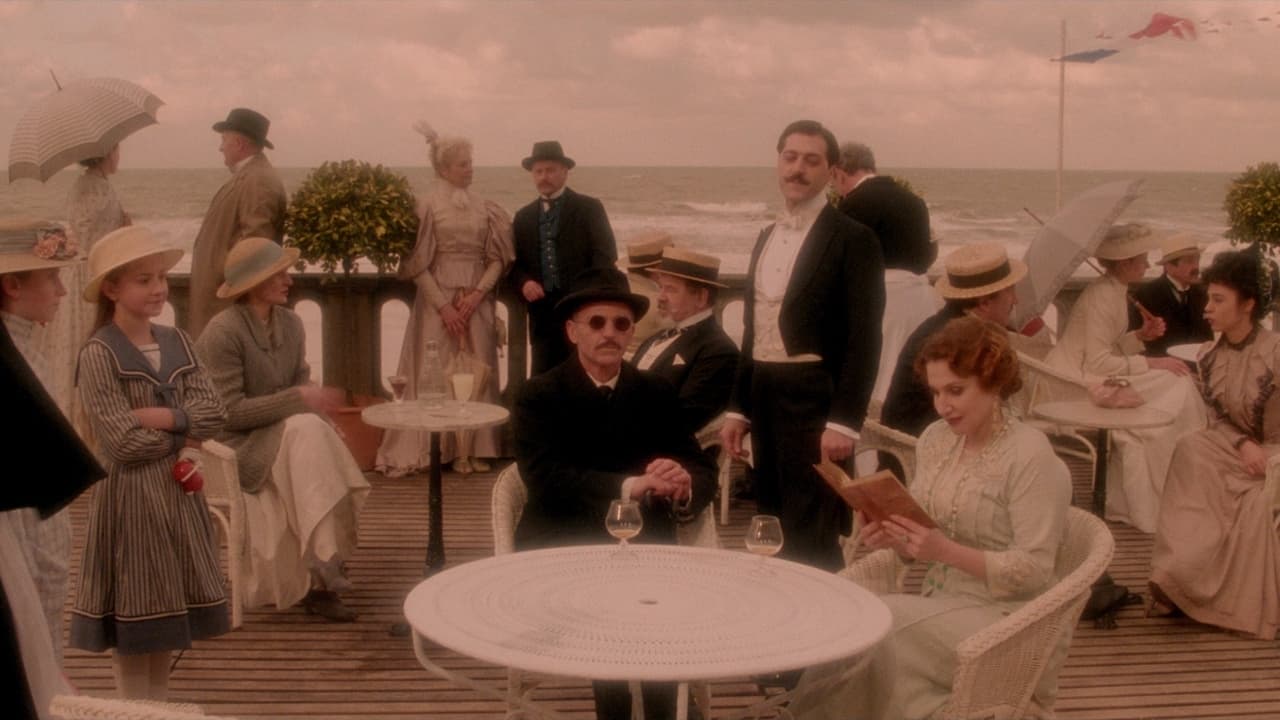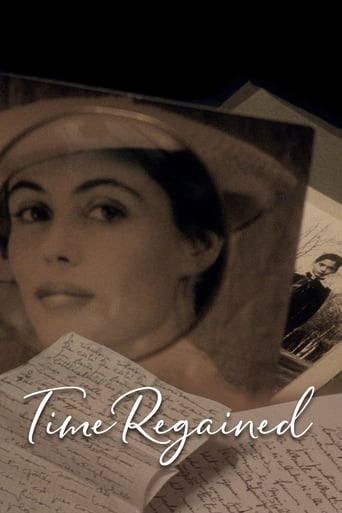

Why so much hype?
... View MoreSuch a frustrating disappointment
... View MoreI wanted to like it more than I actually did... But much of the humor totally escaped me and I walked out only mildly impressed.
... View MoreOne of the best movies of the year! Incredible from the beginning to the end.
... View MoreMy wife who read Proust's works in French liked this movie. I haven't read any Proust so I was completely lost and gave up after the first hour watching the DVD. I got tired of bothering her to ask who was who and what was happening but I kept wandering back to the TV to catch parts of it. I don't recommend this film to anyone unfamiliar with the novels. Characters and events move back & forth in time and if that's not confusing enough, sometimes they appear in the past and present at the same time. She later admitted she lost interest at times and fought off dozing due to the slow pageant-like pacing. This is a demanding film that requires your absolute attention, preferably when you're not tired.I firmly believe the French make the best costume films and this film is a perfect example. Although the handsome period sets and costumes are finely detailed, they are marred by the too dark photography during the indoor scenes. To make matters worse, the white subtitles are hard to read at times because the letters lack black borders making them impossible to read against white or light backgrounds.The actors seemed good matches for their characters but listening to John Malkovich speak drawling phonetic French is bizarre if not funny.Film adapted from novels should stand on their own without the viewer having to read the novel beforehand in order to follow it. 'Time Regained' is probably the best example of not being able to follow a film based on a novel, or to make it worse, several novels.For Proust fans ONLY and those fluent in French due to the bad subtitling.
... View MoreWhat a read! Started with "Time Regained," noted that I was missing things, went back to page 1 of "Swann's Way" and spent the necessary MONTHS to read the whole work. A major effort -- there are sections that are excruciatingly boring, but offset by the most original descriptive writing I have ever read. And I will read it again! Perhaps in French.If you really liked the movie and haven't read the books, wait until you see it AFTER reading the books. Once you become familiar with the characters, as described by Proust, you may have problems with the casting of some of the minor characters, but you will no longer be uncertain about their roles.The whole experience, triggered by the film, was life-expanding.
... View MoreSpoilers herein.This is one of the most ambitious film projects I have seen, risky and successful. It is not successful Proust in my opinion, something different but similar.Proust used the magic of words to weave a life out of remembered fragments. That magic depends on the ability of the written word to generate images in our minds -- Proust found the ability to create these in such a way that they converge with recalled images (of ours, though the focus is purportedly his). This is a particular kind of selfgenerating self-referential art. No life should be without it. No literary life can.Film differs from literature of course, but most profoundly in this context. Film is already an image. Film images can converge with ones in our memories, but they are more anchored. And since they are generated for us, we have to follow rather than lead. Ruiz comes to this from a fabulist perspective, meaning he can make cinematic images less specific, more vague. The solution works: we are presented with a blizzard of characters, scant narrative footing and lots of folding: time folding, image folding, observer overlap. This way, the images we are given are softer and more pliable than usual and allow for something like the consciousness-skipping of Proust. But it is not the same: we watch someone creating a remembered life, but don't really participate in the intimate and shared way of the books.And instead of a book about a life, we have a film about a book about a life. That difference is significant in some ways: when we have Gilberte, we just can't help but fall in love with her a little ourselves. When the concert is fully underway, we see Marcel seeing something. The room shifts, and we know some manifold epiphany is underway, but don't `see' it ourselves. We participate in a cinematic experience, not a life. That life partially unfolds for us in images later, but we don't relive it.All of this is cast in a visual meditation. `In the Mood for Love' works some of this territory, as does `The Thin Red Line.' This differs in the inherent voyeurism and the magical reality created by one of the on-screen characters, and the striking music generated by another.Opening shots are promises. The titles are accompanied by a familiar vision of water over rocks. But it shifts downstream and cants before we know it, and then moves back upstream, telling us the whole idea right there. Then we have a remarkable bedroom scene that by itself is one of the strongest moments in film -- the dictation comes close to the genuine Proust effect, and the surreal movement of furniture against the camera are truly hypnotizing.There's one device that is used subtly, one that you would expect is pretentiously inflated. But it isn't. This is the `camera' that Ruiz gives Marcel: as a boy a lantern that freezes, himself frozen twice, certain ads, certain photos... several other images. Completely understated, and thus more powerful.Ted's Evaluation -- 4 of 4: Every visually literate person should experience this.
... View MoreA wonderful and faithful sight of the XIX century French high society,through the eyes of Marcel Proust: splendid and crual era, where dream,childhood,death,loneliness and vanity fair are tightly melt. If you know Proust, you read once again this opus with a richest look. If you don't know Proust, go to the nearest bookshop, and you will realize what a wizard he was!
... View More